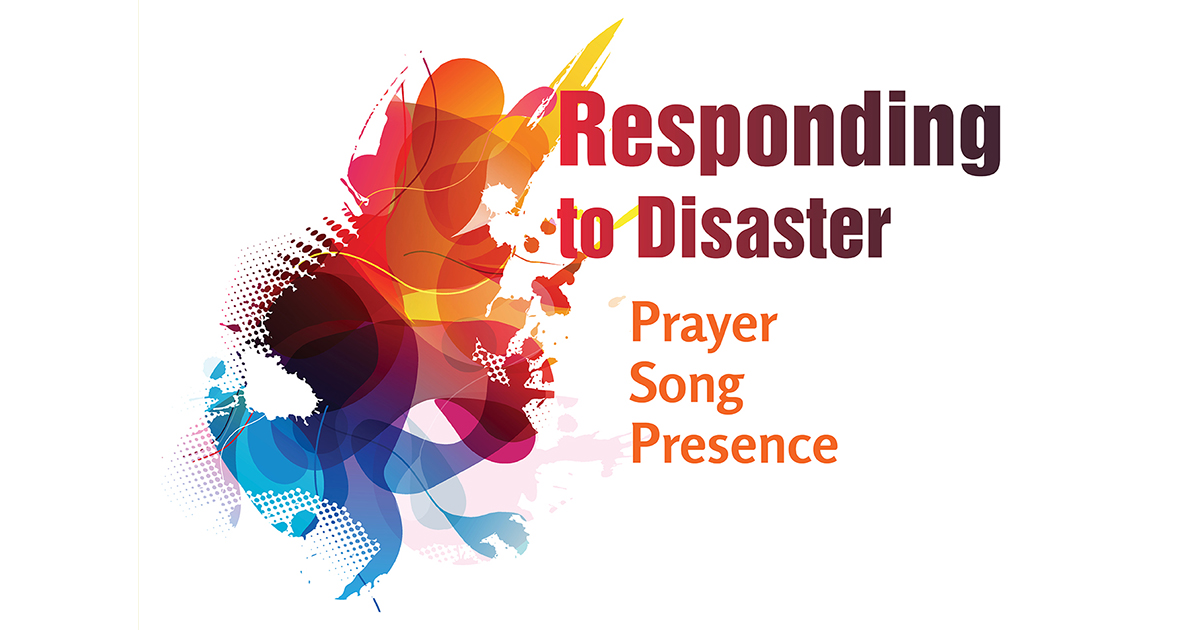In the face of disaster, liturgy and ritual can be a powerful source of comfort to those attempting to process catastrophic events that shatter our sense of normalcy and leave destruction in their wake. But are existing resources for Anglicans and Lutherans up to the task?
For organizers of the upcoming National Anglican and Lutheran Worship Conference, which will take place from July 16-19 in Victoria, B.C., the gap between increasingly frequent disasters and the worship tools available to respond to them was a major factor in developing the theme of the gathering.
“It seems to be endless,” Ansley Tucker, Anglican co-chair of the conference along with Lutheran co-chair Karen Johnson-Lefsrud, said of recent natural disasters. “We had fires in Slave Lake [Alberta], we had fires in B.C. [last] summer; you’ve got hurricanes blowing through the Maritimes. I lived in Calgary during the flood in 2013, and our parish was right at the geographical centre of that flood.
“Then when you add onto that gun violence, terrorism, domestic violence, it just seems as if, whether through natural disaster or disasters which are of human beings’ own making—maybe some natural disasters can be laid at our feet too—we’re having to deal with this more and more. But the reality is that our worship resources give us almost nothing to deal with this as a praying community.”
The resulting theme of the conference, Responding to Disaster: Prayer, Song, Presence, aims to help plug that gap, providing ways for people of faith to respond to traumatic events through worship.
In the case of Anglican liturgies, Tucker pointed to areas in which a different perspective or emphasis might supplement existing materials.
“When we did our last really major liturgical revision, which [was] the Book of Alternative Services, we were really trying to undo the heavy emphasis on sin in the prayer book, and, well, to make our worship more of a celebration,” Tucker said. “And I think maybe we went a little overboard.
“So we have a celebration of the Eucharist, that’s fine. We celebrate marriage, that’s fine. We celebrate life when somebody dies, which is fine, but we seem to have lost our capacity in our liturgical resources for lament. […] Part of what we’re trying to address [is] how the church, when it gathers as a believing and praying community, deals with disasters of any kind—but also how we interact with the civic community and in multi-faith environments when disaster strikes.”
Scheduled speakers reflect that focus on the relationship between the church and the wider community in the aftermath of disasters. Keynote speaker the Rev. Dr. Lizette Larson-Miller is a professor of liturgy at Huron College whose work delves into the question of how to provide rituals that connect with people’s lived experience. A panel discussion will also feature first responders to disasters discussing their own experiences.
Worship at the conference will follow an overarching theme, From Dissonance and Lament towards Transformation and Harmony. Over the course of five worship services, participants will take an emotional journey through the five stages of grief: denial, anger, bargaining, depression, and acceptance.
“Our hope is that the worship will somehow express the capacity that ritual has to echo the dissonance that comes in those times of disaster, while also showing us how the ritual has a resonance in the midst of that,” said the Rev. Canon Dr. Dawna Wall, Anglican co-chair of the worship planning team. “In music and art and spoken word, we’ll try to reflect both of those realities.”
Another highlight will be the presentation of the Companion of the Worship Arts awards to this year’s Anglican and Lutheran recipients, which will take place at a special banquet.
Registration for the conference can be made online, with an early bird rate of $375 recently extended to May 15 and a $450 regular rate thereafter. Fees at registration cover worship, plenary sessions, and some meals. The closing date for registration is June 15, 2018.
“We’re really encouraging anybody, whether they’re ordained or not, who is interested in how we make our worship real in the face of disaster to come,” Tucker said.
Register now for the 2018 National Worship Conference.
Interested in keeping up-to-date on news, opinion, events and resources from the Anglican Church of Canada? Sign up for our email alerts .

